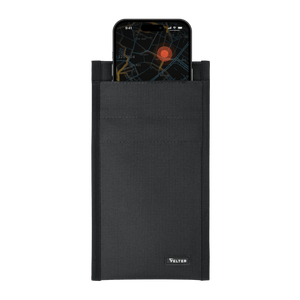
60% of people believe their mobile devices eavesdrop on conversations and deliver personalized ads accordingly. Mention something casually, and it seems to appear in advertisements almost instantly, as if your phone is reading your mind.
Evidence of Eavesdropping
Investigative journalists have run experiments where they discuss specific topics near their smartphones and subsequently notice related ads online. For instance, a viral video shows a man repeatedly talking about cat food, only to see a Facebook ad for cat food shortly after.
American blogger Mitchollow also regularly uncovers eavesdropping gadgets during live streams, making video editing unlikely. In one stream, he talked about dog toys, and soon after, his web ads were inundated with offers for dog toys.
Mitchollow admits these experiments don’t definitively prove secret "advertising eavesdropping." Speaking about dog toys during a YouTube stream means he voluntarily provided Google with audio data. Nevertheless, the analysis of voice data for ad optimization is apparent.
Research by analytics firm Red C for the Irish Communications Regulatory Commission found that 90% of respondents know their personal data is used to optimize ad algorithms. Additionally, 60% believe this information is gathered by listening to private conversations.

Your Gadget is a Spy
Modern devices have constantly active microphones to enable voice assistants. This feature is integrated into mobile operating systems and third-party apps. IT corporations claim that audio data processed through voice assistants is securely protected. However, in practice, companies like Google and Amazon send voice assistant recordings to private contractors, who often fail to ensure the security of this private data, leading to leaks and unauthorized access. While such incidents are usually isolated errors or misuse of authority, they highlight vulnerabilities in the system.
Researchers Jacob Kröger and Philip Raschke from the Technical University of Berlin explore how this system operates in their study titled “Is My Phone Listening to Me?”.

They debunk the idea that collecting and processing audio data imposes an excessive burden on IT infrastructure and mobile operators. According to their findings, eavesdropping can occur almost imperceptibly due to several factors:
- Low sound quality: Algorithms can easily recognize recordings that are difficult for humans to decipher.
- Local processing of speech data: Audio transcriptions occur on the device, so only text is sent to external servers.
- Keyword recognition: Systems react to specific words and phrases, sending minimal data to the server.
- Selective recording: Algorithms only need fragments of conversations to recognize context. Upon hearing a keyword, the device records a short sample and sends it for detailed analysis.
Corporations Know Us Better Than Our Parents
While people suspect their phones listen to their conversations, scientists have proven the technical feasibility of this phenomenon. Yet, the theory of "advertising eavesdropping" remains in the realm of conspiracy, as no IT giant has admitted to collecting personal information this way.
In an interview with CBS News, Instagram head Adam Mosseri stated that the social network does not eavesdrop on users via gadget microphones.

Google also denies these accusations, and Facebook has addressed them twice—once through an official website announcement and another time during a U.S. congressional hearing. Facebook founder Mark Zuckerberg, under oath, denied that Facebook uses mobile device audio to gather personal information.
Assuming these denials are truthful, and the "advertising eavesdropping" paranoia is just coincidental, smartphones still possess numerous features that IT corporations use to collect and analyze personal data.
According to a former high-ranking Google employee, the situation is more serious than simple eavesdropping. By analyzing vast amounts of personal data, algorithms create a "digital fingerprint" of the user, modeling preferences that are reflected in contextual advertising. Considering IT giants have access to geolocation, interests, spending habits, and more, this seems plausible.
Protect Your Privacy
Whether you suspect your smartphone of spying or trust the official stance of IT corporations, privacy protection is essential for every user. To reduce the flow of personal data that tech companies consume, follow these two rules:
- Disable microphone access for apps and voice assistants.
- Monitor the permissions you grant to apps. For example, if a flashlight or calculator app requests access to your location and camera, be cautious.
However, these software solutions can’t be trusted 100%. Sometimes, even disabling a function in settings doesn’t actually turn off the feature that threatens your privacy.

To avoid remote eavesdropping and other digital threats, you need to physically disconnect the device. Gadgets with non-removable batteries lack this capability—whether in power-off mode or airplane mode, the smartphone still transmits information.

To protect yourself, use Velter shielding devices: special sleeves, capsules and bags that act as Faraday cages, blocking signals from mobile gadgets.
Conclusion
The fear that smartphones might be listening to our conversations and serving targeted ads is common. While no major tech company has admitted to this practice, the collection of vast amounts of personal data through other means is undeniable.
To protect your privacy, be cautious about app permissions and disable microphone access when not needed. However, software solutions alone aren't enough. Physical solutions like Velter shielding devices offer effective protection against remote eavesdropping and other digital threats.
In a world of constant digital surveillance, combining software and hardware solutions is key to keeping your personal data secure and your private conversations private.


